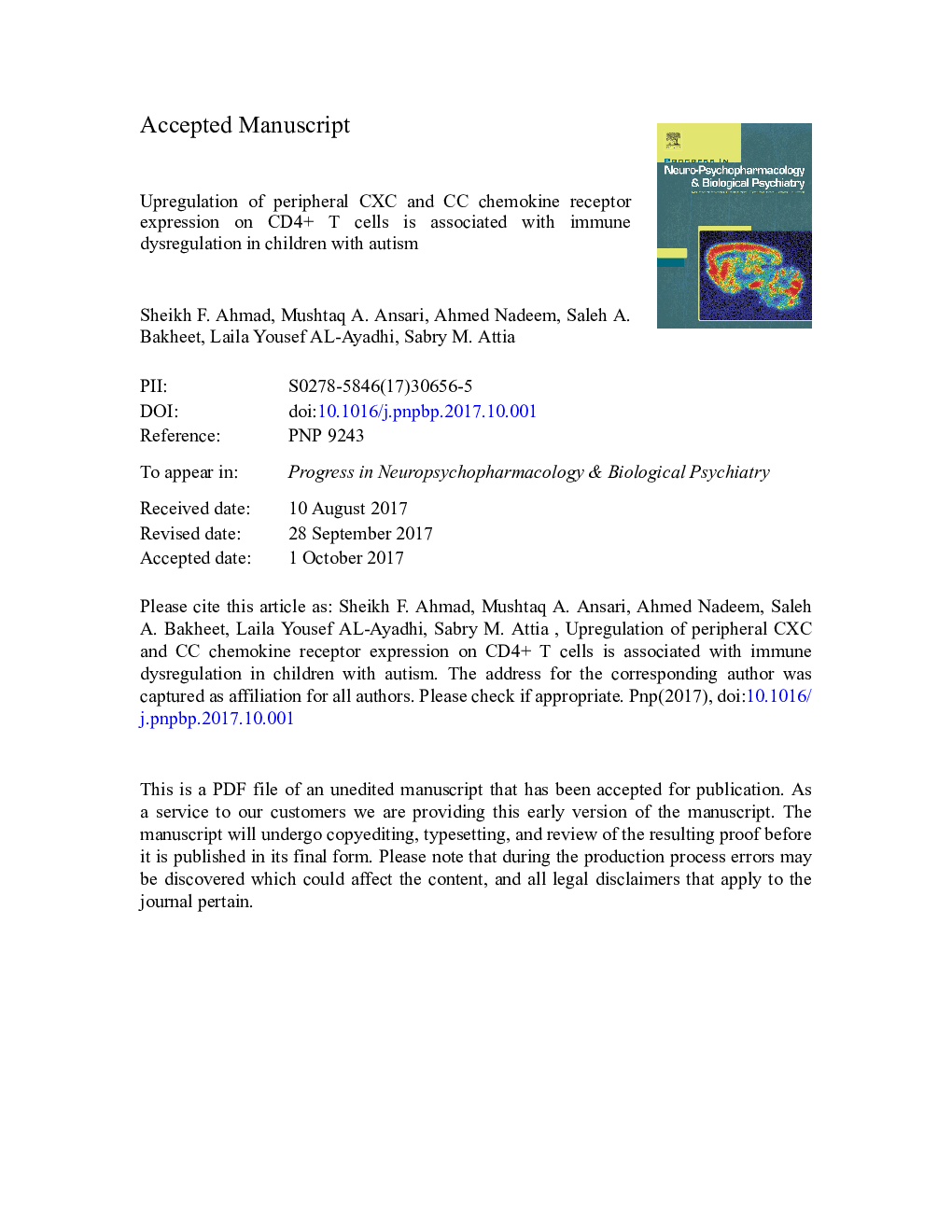| Article ID | Journal | Published Year | Pages | File Type |
|---|---|---|---|---|
| 8537502 | Progress in Neuro-Psychopharmacology and Biological Psychiatry | 2018 | 38 Pages |
Abstract
Autism spectrum disorders (ASD) are characterized by disturbances in social interactions and communication, restricted repetitive interests, and stereotyped behavior. Cumulative evidence recommends that there are immune alterations in ASD. Chemokine receptors are known to play an important role in the central nervous system (CNS) and in many neuro inflammatory disorders. The main objective of this study was to explore the role of CXC and CC chemokine receptors signaling in children with autism. We examined chemokine receptor production of CXCR2, CXCR3, CXCR5, and CXCR7 in all peripheral blood mononuclear cells (PBMCs) and in CD4+ T cells of typically developing control children (TD) and autistic children (AU). We also examined chemokine receptor production of CCR3, CCR5, CCR7, and CCR9 in all PBMCs and in CD4+ T cells of AU and TD samples using flow cytometric analysis. In addition, we measured mRNA expression levels of CXC and CC chemokine receptors using quantitative RT-PCR analysis. Our results showed the increased production of CXCR2+, CXCR3+, CXCR5+, and CXCR7+ and CCR3+, CCR5+, CCR7+, and CCR9+ in all PBMCs and in CD4+ T cells of children with AU as compared to TD controls. Our results show that chemokine receptor signaling components might provide unique therapeutic targets for children with AU and other neurological disorders.
Keywords
Related Topics
Life Sciences
Neuroscience
Biological Psychiatry
Authors
Sheikh F. Ahmad, Mushtaq A. Ansari, Ahmed Nadeem, Saleh A. Bakheet, Laila Yousef AL-Ayadhi, Sabry M. Attia,
